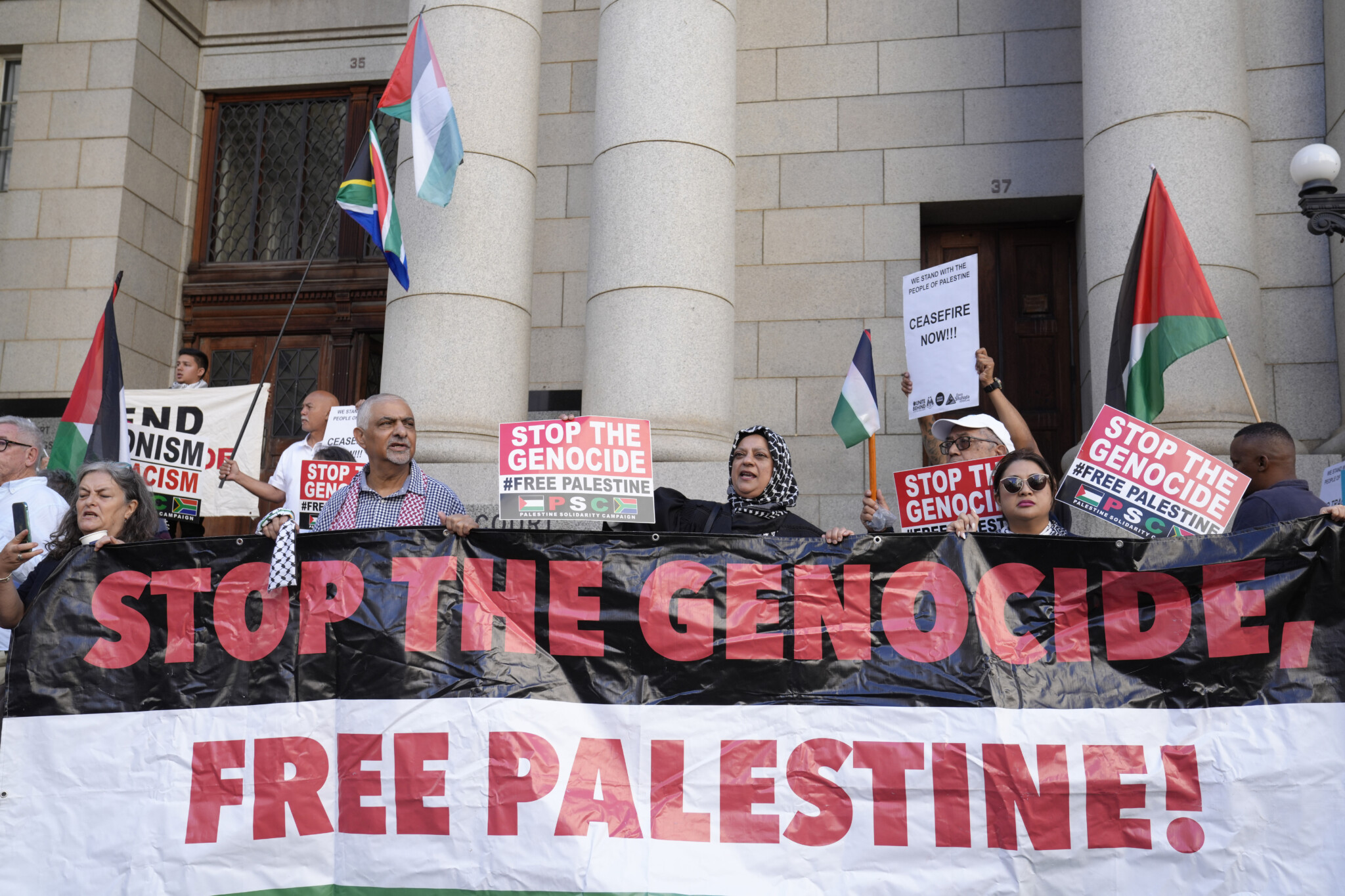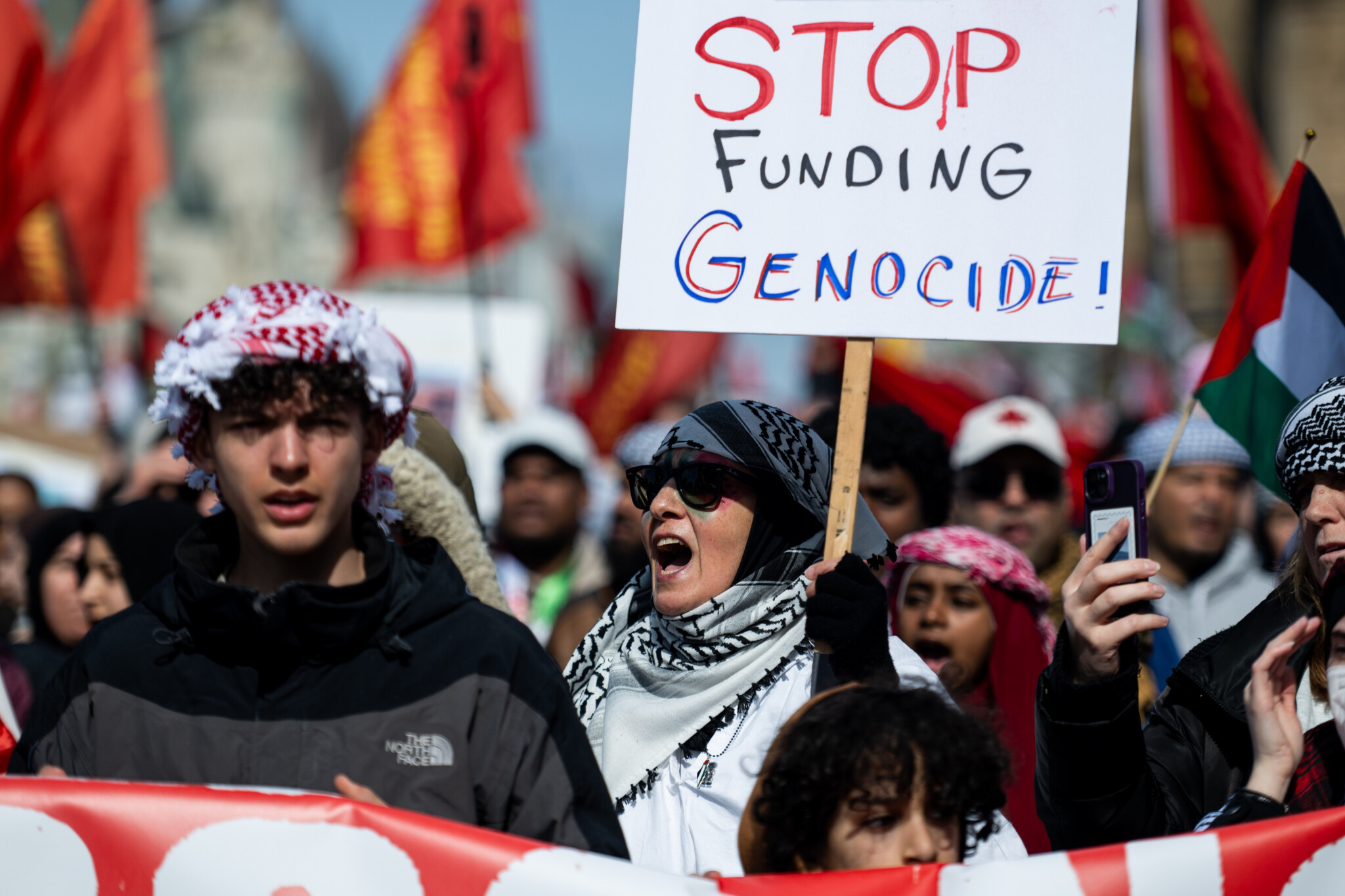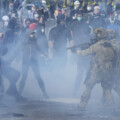When Raphael Lemkin coined the term “genocide” in 1944, he did so to capture a crime so profound that existing legal language failed to contain it.
As Philippe Sands recounts in his masterful 2016 book East West Street, Lemkin—a Polish-Jewish lawyer, Holocaust survivor, and the only living member of a family decimated by the Nazi genocide—was obsessed with one idea: that mass murder aimed at the destruction of a people was not simply a crime against individuals, but against groups. It required a new legal category, one that could name the horror of what had happened to the Armenians, to the Jews, and, he feared, to others if the law remained silent.
Lemkin’s vision crystallized in his 1944 book Axis Rule in Occupied Europe, in which he coined the term “genocide” to describe the systematic annihilation of groups. His tireless advocacy culminated in the Genocide Convention of 1948, which defines genocide as acts committed with the intent to destroy, in whole or in part, a national, ethnic, racial, or religious group. It is a high threshold, and deliberately so. As Sands makes clear, Lemkin wasn’t interested in vague rhetoric. He was trying to build a legal architecture that could prevent future exterminations by holding perpetrators accountable, not by amplifying slogans.
Today, we are a long way from Lemkin’s careful construction. “Genocide” has become a term of artless convenience, used as a political weapon rather than a legal claim. It is hurled at governments, broadcast in protests, and spray-painted as slogans with little regard for the criteria Lemkin fought so hard to define. Most notably, it is used—routinely, reflexively—against Israel.
Let’s be clear: this is not a defence of every Israeli action, nor a denial of Palestinian suffering. But we do ourselves and the victims of real genocides a disservice when we debase the meaning of the term. “Genocide” is not just a synonym for “military aggression” or “civilian casualties.” It requires intent to destroy a people as such—not just to do harm, not just to wage war, not even to stage an occupation. To accuse a state of genocide is to accuse it of trying to erase a people. That is not a claim to be made lightly.
Indeed, if we are to take the Genocide Convention seriously—particularly the element of intent—then one could argue that it is Hamas and the Islamic Republic of Iran that more closely conform to the legal definition. Both have publicly and repeatedly declared their desire to annihilate the State of Israel and, in many instances, the Jewish people writ large.
The 1988 Hamas Charter explicitly quotes Islamic scripture, invoking the killing of Jews, framing it as a religious imperative. In 2017, the Iranian regime installed a clock in Tehran’s Palestine Square that displayed a countdown of days until “the destruction of Israel.” This macabre billboard has remained on view until this month—when it was taken down by Israel’s targeted attacks, according to the Israeli defence minister.

Pro-Palestinian supporters picket outside the High Court in Cape Town, South Africa, Jan. 11, 2024. Nardus Engelbrecht/AP Photo.
Former Iranian president Mahmoud Ahmadinejad has said that Israel is a “disgraceful blot” that should be “wiped off the face of the Earth,” and Iran’s Supreme Leader, Ayatollah Ali Khamenei, referred to Israel as a “cancerous tumour” that “must be eradicated.” This is not coded language. It is the open declaration of genocidal intent. That such actors are now the loudest in accusing others of genocide is not only ironic, it is an inversion of moral and legal reality.
Worse still, if acts of national self-defence—even flawed or disproportionate ones—are casually equated with genocide, then international law itself collapses under the weight of moral absolutism. Were NATO to be judged by that standard, its interventions in the Balkans, in Libya, or even in Afghanistan could be similarly recast as genocidal. Once self-defence is rebranded as extermination, the ability of any democratic state to respond to attacks—be they from terrorist groups or hostile regimes—is politically and legally paralyzed. In that world, deterrence dies, and rogue actors flourish.
Sands’ East West Street juxtaposes Lemkin’s vision of “genocide” with Hersch Lauterpacht’s focus on “crimes against humanity”—a more individual-focused framework.Lauterpacht, a fellow Jewish legal scholar and contemporary of Lemkin, helped craft the concept of crimes against humanity and was a key architect of modern international human rights law.
Where genocide targets a group for destruction based on its identity, crimes against humanity focus on widespread or systematic attacks on civilians regardless of group status. The distinction mattered then, and it matters now. When every war crime is labelled genocide, we lose the ability to distinguish between wrongs. And when everything is genocide, nothing is.
This matters especially in the context of Israel, where accusation often precedes investigation, and where “genocide” is used not as a legal charge but as a political judgment—a way of delegitimizing the state itself, not analyzing its conduct. This distortion becomes even more alarming when one considers that both Hamas and the Iranian regime have explicit, stated goals: the destruction of the State of Israel and the annihilation of the Jewish people. To conflate Israel’s response to such existential threats with genocide not only reverses the reality, it erases the intent of those who actually espouse genocidal ambitions. That inversion should trouble anyone who believes in law over propaganda.
More dangerously, it creates fatigue. When the word is used indiscriminately, it loses power. When we label complex, tragic conflicts as genocides without evidence of intent, we weaken our collective capacity to respond when the real thing happens, from Rwanda to Srebrenica to the Yazidis in Iraq. Lemkin gave us a word to name the worst of human crimes. We should not turn it into a slogan.
Words matter. Law matters. Lemkin knew this, and Sands reminds us of it. The victims of actual genocides deserve the dignity of truth, not the distortion of their suffering for contemporary political ends. If we are to honour Lemkin’s legacy, we must use his word with the care, clarity, and weight it demands.









